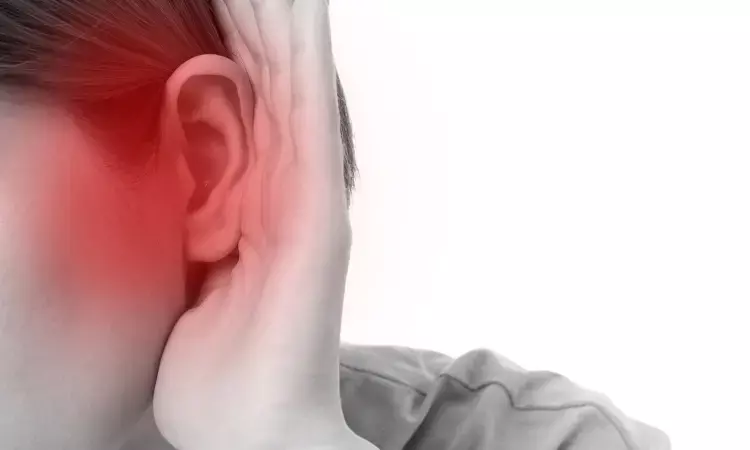- Home
- Medical news & Guidelines
- Anesthesiology
- Cardiology and CTVS
- Critical Care
- Dentistry
- Dermatology
- Diabetes and Endocrinology
- ENT
- Gastroenterology
- Medicine
- Nephrology
- Neurology
- Obstretics-Gynaecology
- Oncology
- Ophthalmology
- Orthopaedics
- Pediatrics-Neonatology
- Psychiatry
- Pulmonology
- Radiology
- Surgery
- Urology
- Laboratory Medicine
- Diet
- Nursing
- Paramedical
- Physiotherapy
- Health news
- Fact Check
- Bone Health Fact Check
- Brain Health Fact Check
- Cancer Related Fact Check
- Child Care Fact Check
- Dental and oral health fact check
- Diabetes and metabolic health fact check
- Diet and Nutrition Fact Check
- Eye and ENT Care Fact Check
- Fitness fact check
- Gut health fact check
- Heart health fact check
- Kidney health fact check
- Medical education fact check
- Men's health fact check
- Respiratory fact check
- Skin and hair care fact check
- Vaccine and Immunization fact check
- Women's health fact check
- AYUSH
- State News
- Andaman and Nicobar Islands
- Andhra Pradesh
- Arunachal Pradesh
- Assam
- Bihar
- Chandigarh
- Chattisgarh
- Dadra and Nagar Haveli
- Daman and Diu
- Delhi
- Goa
- Gujarat
- Haryana
- Himachal Pradesh
- Jammu & Kashmir
- Jharkhand
- Karnataka
- Kerala
- Ladakh
- Lakshadweep
- Madhya Pradesh
- Maharashtra
- Manipur
- Meghalaya
- Mizoram
- Nagaland
- Odisha
- Puducherry
- Punjab
- Rajasthan
- Sikkim
- Tamil Nadu
- Telangana
- Tripura
- Uttar Pradesh
- Uttrakhand
- West Bengal
- Medical Education
- Industry
Hope for treatments against hearing loss as 10 genes identified

Researchers led by King's College London, Karolinska Institute and Erasmus University have identified 10 new genes linked with hearing loss and located the part of the ear affected.
The findings, published today in American Journal of Human Genetics, cast doubt on the understanding that age-related hearing impairment originates mainly from sensory hair cells. Researchers argue that the stria vascularis, a part of the cochlea in the ear, is a new target for treatments to help people with hearing loss.
Many people gradually lose some of their hearing ability as they get older, and an estimated 2.4 billion individuals will have some form of hearing loss by 2050. Age-related hearing impairment is a top contributor to years lived with disability and is also an important risk factor for dementia.
The team studied genetic analyses previously carried out in centres around the world using samples from 723,266 people from 17 studies who had clinically diagnosed or self-reported hearing impairment. This meta-analysis is one of the largest conducted in hearing genetics to date. The researchers identified 48 genes linked to hearing loss, including 10 new variants newly linked to hearing.
Further analysis looking at mouse genetics indicated that age-related hearing loss is due to changes in the stria vascularis which is necessary for hearing. The results provide targets for the basis of future research which could improve therapies against hearing loss.
Co-main author Frances Williams, Professor at King's College London, said: "Our findings identify 10 genes newly linked with hearing loss. This study points to genes we could target for screening purposes, drug development and even gene therapy in the future. This study provides a solid foundation for ultimately improving therapies against hearing loss."
Read the full article at:
Dr Kamal Kant Kohli-MBBS, DTCD- a chest specialist with more than 30 years of practice and a flair for writing clinical articles, Dr Kamal Kant Kohli joined Medical Dialogues as a Chief Editor of Medical News. Besides writing articles, as an editor, he proofreads and verifies all the medical content published on Medical Dialogues including those coming from journals, studies,medical conferences,guidelines etc. Email: drkohli@medicaldialogues.in. Contact no. 011-43720751


